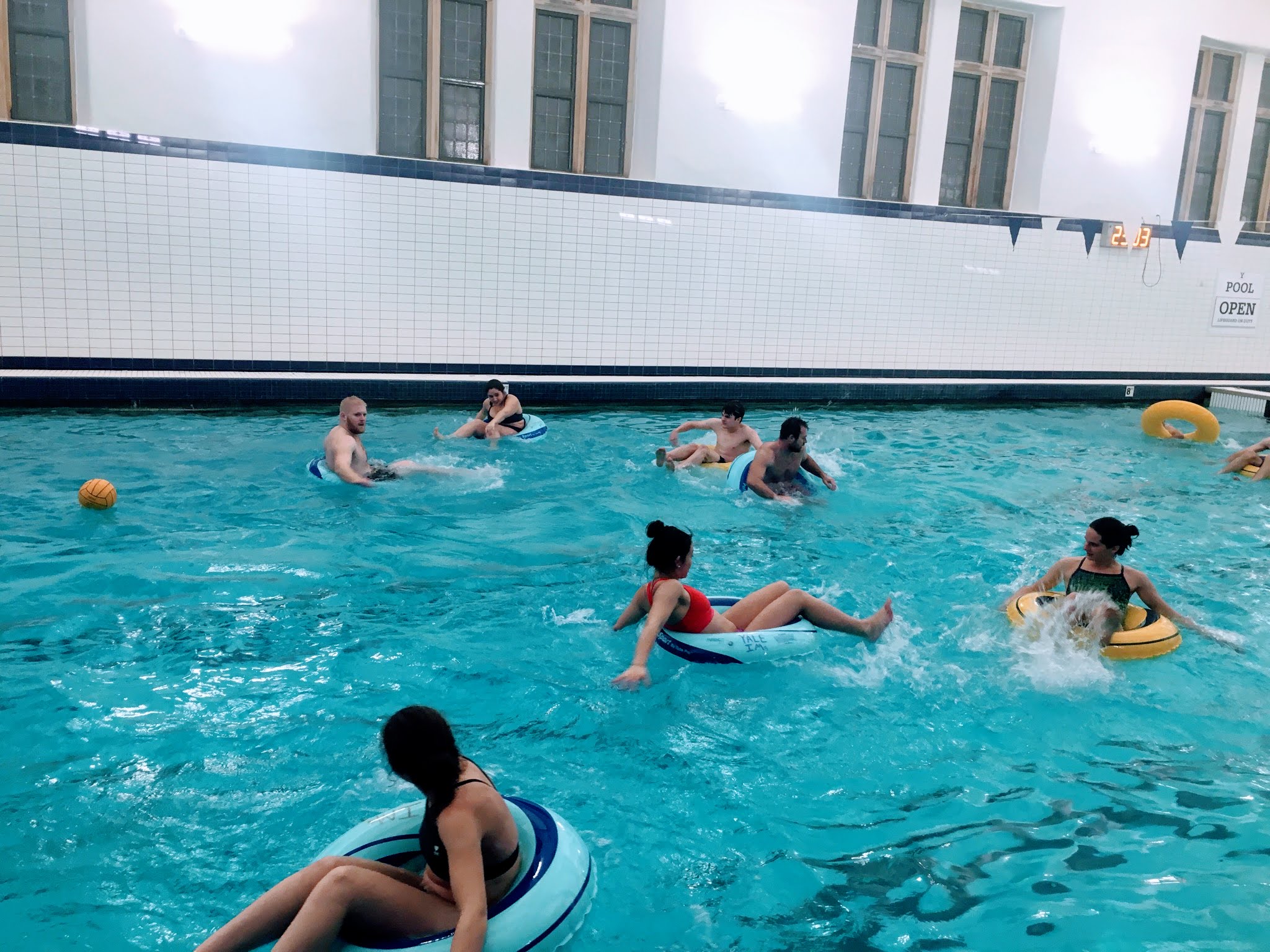
As a result of the shortened school year, two residential colleges shared Yale’s intramural championship title, the Tyng Cup, for the first time since 1985–86 school year and the third time in Yale’s history. With no spring competition, Saybrook and Grace Hopper both earned Tyng championships.
Each year, Yale College students compete in various intramural sports to earn points for their respective residential colleges. The college with the most points at the end of the school year wins the coveted Tyng Cup, but because of unavoidable disruptions to play, the intramural season abruptly stopped when classes moved online. At the time, Saybrook led all colleges in overall points, according to Tyng Cup standings obtained by the News.
Hopper trailed Saybrook by 11 points, but since Saybrook had won the fall season and Hopper had won the winter, Saybrook Head IM Secretary Lucy Zhu ’21 said the two colleges shared the Tyng. Hopper earned its first title since the 1975–76 school year, ending the longest active Tyng drought, while the title marked Saybrook’s third consecutive crown.
“It means a lot to us,” Zhu said. “We were telling our community from the very beginning, ‘Hey, we’re going to go for the three-peat this year.’ This was our goal. To be able to meet that goal and to be able to tell our community — it was a pretty big deal.”
Hopper and Saybrook are the third-ever duo to share the Tyng. Davenport and Pierson shared the title during the 1969–70 school year, according to online Tyng Cup archives. The News’ coverage of the school year indicates that Davenport and Pierson came to an agreement to split the Cup during an intramural season marred by student strikes. In the early months of 1970, nine members of New Haven’s Black Panther party were tried in a criminal prosecution. To the disappointment of some student activists, the University maintained neutrality in the proceedings, and campus protests disrupted athletic play and led to a number of forfeits.
A few Davenport intramural teams refused to accept the forfeits “out of respect to the student strike.” The season ended with Davenport sitting only 5.6 points behind Pierson, which prompted the agreement between the colleges.

In the 1985–86 school year, Morse and Timothy Dwight also had joint ownership of the championship. As that intramural season wound down, the two teams were separated by a razor-thin 4.5-point margin. After controversies over discrepancies in scoring and appeals from both college heads, the decision was made to give the teams a tie. Morse captured its first Tyng championship that year, while TD won its fourth straight title.
Once it became clear the University would not resume on-campus instruction this spring, the intramural team turned to a new, creative way of encouraging friendly competition: esports. Since early April, Yale students have been competing online in a number of competitive video games. The competitions have stretched beyond just sporting games, including Words with Friends, Super Smash Bros and Fortnite. Head Intramural Secretary Rachel Cohen ’21 organized March Madness-style bracket competitions for over 450 students.
“Since we will not be returning to campus this semester, the spring IM season cannot happen as planned,” Cohen said. “However, I did want to find a way to bring people together through sports, even if we are spread out across the world. IMs are a unique balance between competition and community that does not exist in other extracurriculars. Losing that for the rest of the semester would be difficult for a lot of people.”
The intramural team made the decision to exclude esports from the Tyng Cup standings and said they do not anticipate them being a permanent part of the intramural season. Should esports gain a permanent status in the intramural program, administrators will need to work out a few difficulties encountered this season. A few events fell flat with a lack of motivation on students’ part and challenges finding similarities between console and game generation.
The Madden tournament, for example, only had 16 sign-ups spread between PlayStation, Xbox and a number of different versions of the game. Words with Friends, meanwhile, had over 200 participants, but never named a champion because games were taking too long and players dropped out without notice. Still, given the challenges the school faced, students expressed gratitude for an initiative that might have a real future on campus.
“I think the main goal with esports is preserving that sense of community that many of us lost with moving classes online,” Trumbull IM Secretary Hannah Foley ’23 told the News when the intramural team announced esports competition. “The contests are informal and … are meant to build camaraderie and foster some of that same residential college spirit from home.”
Yale has named at least one Tyng Cup champion every year since 1946, when the cup was retired for World War II.
Nader Granmayeh | nader.granmayeh@yale.edu






